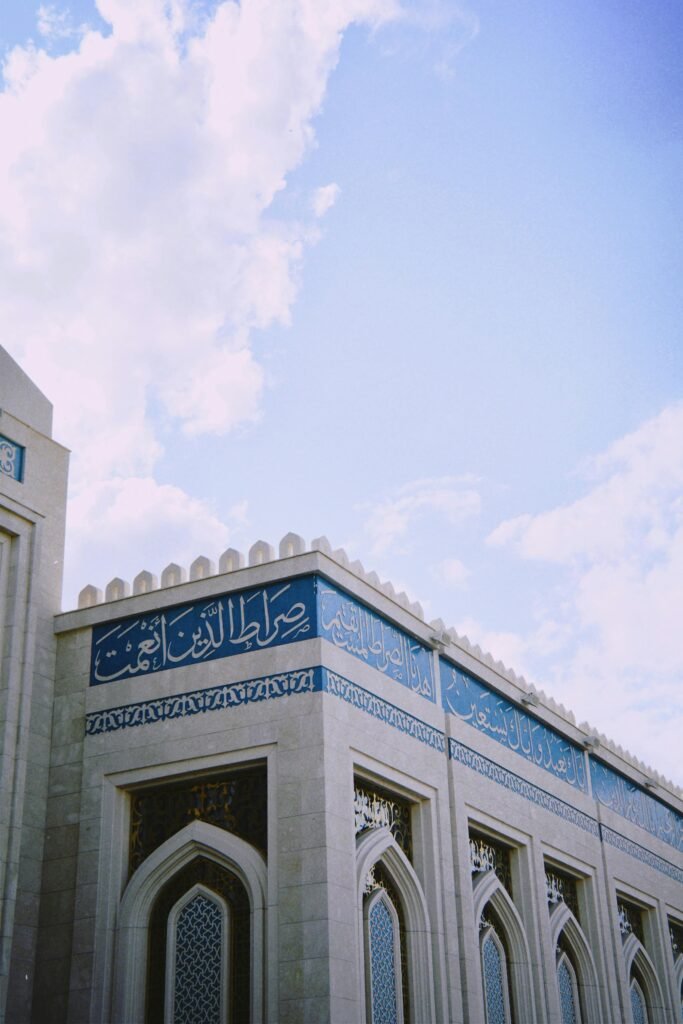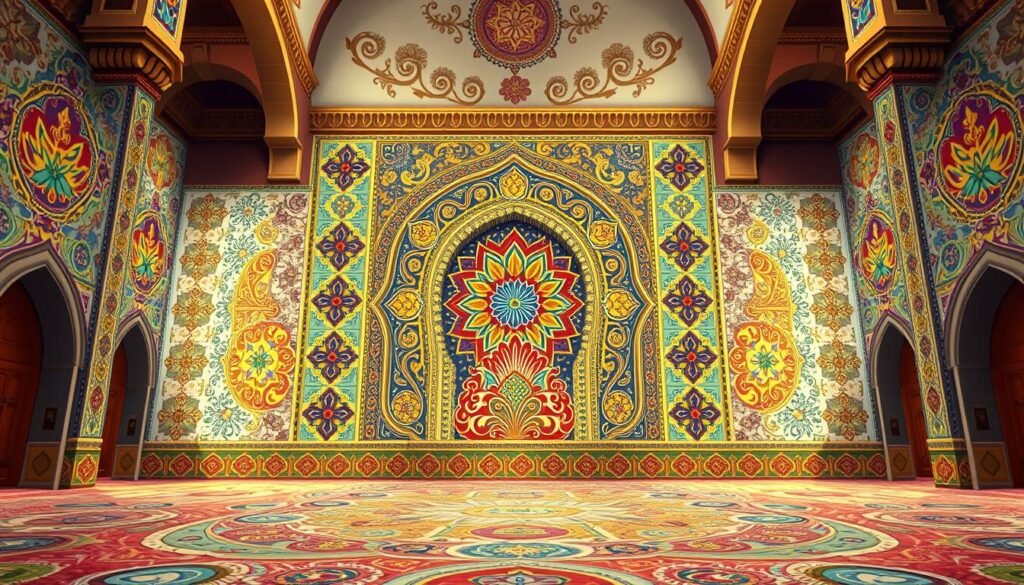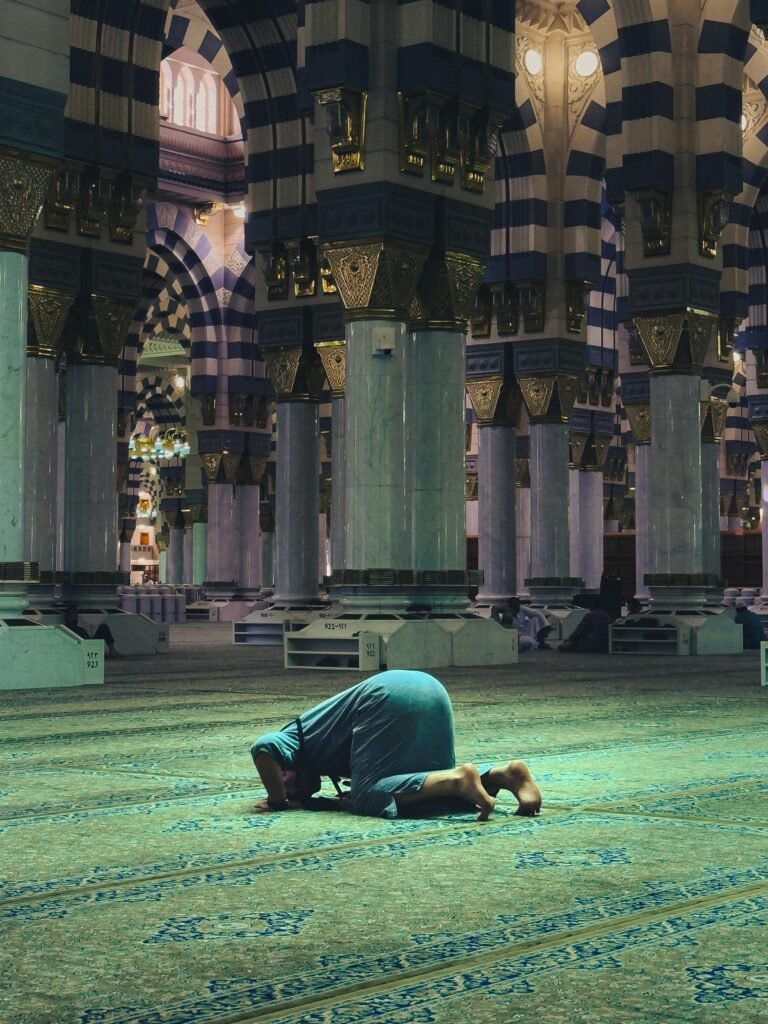Islamic News: The Rise and Fall of the Caliphate

In the ever-evolving realm of Islamic News, few subjects evoke as much reverence, curiosity, and emotional depth as the rise and fall of the Caliphate. A saga interwoven with glory, struggle, unity, and eventual disintegration, the Caliphate represents both a political legacy and a spiritual ideal in Islam. For centuries, it guided the destiny of the Muslim world, serving as the heartbeat of leadership and justice. Today, it lives on in the collective memory of believers, educators, scholars, and observers of Islamic History.
🌙 The Caliphate in Islamic News
The term “Caliphate” (Khilafah) transcends mere political description. In Islamic News, it’s a powerful symbol of unity, divine purpose, and historical evolution. At its height, the Caliphate was more than an empire—it was a profound embodiment of Islamic Information, encompassing governance, science, art, and soul-stirring spirituality.
This monumental rise and poignant decline are not just pages in a history book; they’re deeply entwined with modern Islamic Hijri identity, guiding moral compasses and shaping worldviews. From the Rashidun Caliphate to the dissolution of the Ottoman Caliphate, each era carved a unique legacy into the ever-expanding tapestry of Islam.
🕋 What is the Caliphate?
The Caliphate, or Khilafah, is the divine succession to the Prophet Muhammad (PBUH) in worldly leadership. It is not a prophetic role, but a continuation of the Prophet’s role in upholding divine law and uniting the Ummah (Muslim community).
The Duties of a Caliph:
- Ensure justice and uphold Sharia.
- Guard the borders and welfare of the Muslim lands.
- Lead with righteousness and humility.
- Promote knowledge, morality, and the Islamic religion.
In the realm of Islamic News, the Caliphate is discussed not merely as an extinct system but as a spiritual archetype for Islamic governance.
🏛️ Foundations of the First Caliphate
1. Rashidun Caliphate (632–661 CE)
Immediately after the Prophet Muhammad’s death, leadership passed to Abu Bakr as-Siddiq. This marked the genesis of the Caliphate. The next three Caliphs—Umar ibn al-Khattab, Uthman ibn Affan, and Ali ibn Abi Talib—would oversee the vast expansion and foundational justice system of Islam.
This golden period saw:
- The preservation and compilation of the Qur’an.
- Military campaigns that liberated oppressed peoples.
- Strong Islamic Information dissemination through scholars and scribes.
Even in today’s Islamic News, this era is often referenced as the most authentic representation of Islamic religion-based governance.
🏰 The Umayyad and Abbasid Caliphates
2. Umayyad Caliphate (661–750 CE)
Based in Damascus, the Umayyads established the first dynastic rule. Their reign expanded the Caliphate from Spain to the Indus Valley. Arabic became the administrative language, and urban development surged.
While their leadership was autocratic at times, they laid down the institutional frameworks that would influence Islamic New Year celebrations and Hijri calendar reform.
3. Abbasid Caliphate (750–1258 CE)
Perhaps the most intellectually fertile era in Islamic History, the Abbasid dynasty established Baghdad, home to the House of Wisdom. This was the beating heart of the Islamic Golden Age.
Key Achievements:
- Advances in astronomy, medicine, and algebra.
- Deep philosophical debates blend Greek and Islamic religions.
- Literature that rivaled Homer and Confucius.
This period is celebrated in Islamic News today for its explosive growth in Islamic Information and spiritual elevation.
🪔 The Islamic Golden Age: Enlightenment of the Soul

In the shadow of the Abbasid Caliphate bloomed a renaissance of unparalleled magnitude. As seen in major Islamic Website retrospectives, the Islamic Golden Age (8th–13th centuries) was the dawn of boundless creativity and divine inspiration.
Celebrated Minds:
- Al-Khwarizmi: Father of algebra.
- Ibn Sina: Architect of modern medicine.
- Al-Ghazali: Mystic, philosopher, and revivalist.
Libraries in Cordoba, Baghdad, and Cairo contained thousands of manuscripts. Streets were lit, universities flourished, and Islamic Information was revered like sacred treasure.
🏹 The Fragmentation and Fall
4. Internal Divisions
As Caliphates became dynasties, power struggles intensified. Greed, deviation from Islamic principles, and assassination became sadly commonplace in later Islamic News archives.
- Sectarianism between the Sunni and Shia factions fractured unity.
- Loyalty to rulers waned in favor of tribal or national affiliations.
- Cultural arrogance replaced spiritual humility.
5. Mongol Invasion (1258 CE)
The fall of Baghdad to the Mongols was devastating. Thousands perished, libraries were burned, and the spiritual heart of Islam seemed extinguished.
But as always in Islamic History, darkness is followed by light.
🕌 Ottoman Caliphate and Its Dissolution
6. Ottoman Ascendancy (1517–1924 CE)
The Ottoman Sultans assumed the Caliphate after conquering Egypt. They revitalized Islamic New Year traditions, protected Mecca and Medina, and reestablished justice.
Islamic News often recalls:
- Magnificent architecture like the Blue Mosque.
- Naval defenses of Muslim lands.
- Promotion of education and the Islamic religion.
7. Abolition of the Caliphate (1924)
Under pressure from Western colonial powers and internal secularism, Mustafa Kemal Atatürk abolished the Caliphate. This seismic event still reverberates in Islamic News, awakening calls for revival among some, and reflection among others.
🔁 Modern Echoes of the Caliphate in Islamic News
In contemporary discourse, Islamic News features ongoing debates about the return, reformation, or complete reinterpretation of the Caliphate. These dialogues stir emotion, especially during the Islamic Hijri calendar and Islamic New Year, as Muslims reflect on their legacy.
Modern Misconceptions:
- Extremist groups misuse the term to legitimize terror.
- Pop culture distorts it into a mythical kingdom.
- Secular narratives paint it as archaic.
But Islamic Information scholars remind us: the Caliphate, in essence, is about love, justice, mercy, and intellectual freedom.
🌙 Spiritual Anchors: Roza, Salah, Eid
While discussing governance and leadership, Islamic News often redirects readers to the spiritual backbone of Islam.
🌙 What is Roza?
Roza refers to fasting during the holy month of Ramadan. It is not mere abstinence from food, but a journey into empathy, control, and divine connection.
🕌 What is Salah?

Salah is the sacred act of praying five times a day. It aligns time, space, and soul in worship of Allah. It is the pulse of Muslim life, more consistent than even the Caliphate itself.
🌙 What Is Eid?
Eid al-Fitr and Eid al-Adha are the celestial celebrations of the Muslim world. They symbolize rebirth, sacrifice, and community joy—timeless fixtures in both Islamic News and personal faith.
📚 The Power of Islamic Information
Today, access to Islamic Information is greater than ever. From university courses to smartphone apps, the legacy of the Caliphate breathes through syllabi, documentaries, and Friday sermons.
Yet, in this information age, Islamic News must be curated carefully, ensuring the emotional depth, historical accuracy, and sacred truths remain intact.
📅 Importance of Islamic Hijri and Islamic New Year
The Islamic Hijri calendar is not just a chronology—it’s a sacred system rooted in sacrifice. It began with the Prophet Muhammad’s migration to Medina, symbolizing struggle and spiritual rebirth.
Every Islamic New Year, believers pause to assess their faith, honor the past, and envision a brighter, more unified future. In Islamic News, the Hijri calendar guides reflections on time, identity, and resilience.
✊ Lessons from the Caliphate for the Modern World
Even without a Caliphate today, its teachings can illuminate paths forward:
- Unity over tribalism.
- Knowledge over ignorance.
- Mercy over tyranny.
- Service over status.
Islamic News platforms, journals, and speakers constantly echo these truths, reminding the world that Islam is not merely historical—it’s profoundly eternal.
🌍 Conclusion: The Heartbeat of Islamic News
The tale of the Caliphate is a tale of human ambition intertwined with divine guidance. Its rise was glorious, its fall tragic, yet its legacy is immortal. In every headline, article, and reflection, Islamic News reawakens its story—not just as a remembrance, but as a call to integrity,
